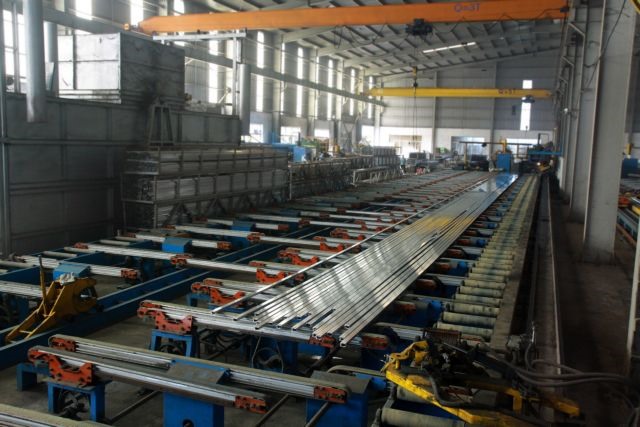The EVFTA is expected to bring big opportunities for the Vietnamese aluminium sector; however, experts have said there are still challenges for local firms looking to take advantage.

The EU – Viet Nam Free Trade Agreement (EVFTA) is expected to bring big opportunities for the Vietnamese aluminium sector; however, experts have said there are still challenges for local firms looking to take advantage.
Nguyen Minh Ke, chairman of the association of Vietnamese aluminium profile for the North told a workshop in Ha Noi this week that the local aluminium industry has faced fierce competition from foreign firms in the domestic market. The country’s aluminium sector is still young and has not yet employed advanced technologies.
“In addition, the competitiveness of Viet Nam’s aluminium products has been weak," Ke said. "Imports of input materials for aluminium production have been taxed at 3 per cent since September 2015 while the export tax was increased from zero to 5 per cent, making it difficult for local aluminium producers."
He added that EVFTA would bring opportunities but also challenges due to strict requirements from the EU in the areas of product origins, environmental protection and labourer regulations.
Vu Van Phu, the association’s vice chairman cum general secretary, said only 5 per cent of the aluminium produced in Viet Nam is exported to the EU.
“Goods exported to the EU must be of good quality and clear origins to meet with requirements," he said. "Vietnamese aluminium businesses have been weak in the area of goods origin. They must overcome this shortcoming to fully tap the opportunities from EVFTA.”
He added that most local firms relied on imported materials.
He suggested businesses have their own materials or import from countries other than China.
Vice President of the European Chamber of Commerce in Viet Nam (EuroCharm) Nguyen Hai Minh said the tariff for Vietnamese aluminium exports to the EU would be eliminated within eight years of when EVFTA takes effect. However, Minh emphasised that businesses must meet market conditions to enjoy incentives even after tariffs are removed.
With this deal, European businesses will shift their investment to Viet Nam, then export to ASEAN countries and move towards other Asian markets, he said.
He suggested businesses, especially small- and medium-sized enterprises, change their mindset and working style to make use of opportunities from trade deal.
Senior economist Vo Tri Thanh said Viet Nam’s aluminium products have primarily been exported to ASEAN countries, the US and the EU.
He suggested local producers further enhance exports to reduce the impact of competitiveness in the domestic market.
There is still a lot of room for Vietnamese aluminium in the European market, he said. In the domestic market, the anti-dumping tax is a protection tool but will only last for a few years. Therefore, he said, improving competitiveness is a way for Vietnamese enterprises to develop and take advantage of FTAs with exports. — VNS
|
The association of Vietnamese aluminium profile for the north officially made its first public appearance in Ha Noi on Tuesday. The establishment of the association was intended to protect the rights of members, provide a forum for the exchange of information and submit proposals to the Government to ensure a sustainable aluminium market. The association is expected to connect its members to foreign markets by building policies through negotiations with foreign partners. It will build standards for aluminium products to help domestic goods compete with imported ones. — VNS |





